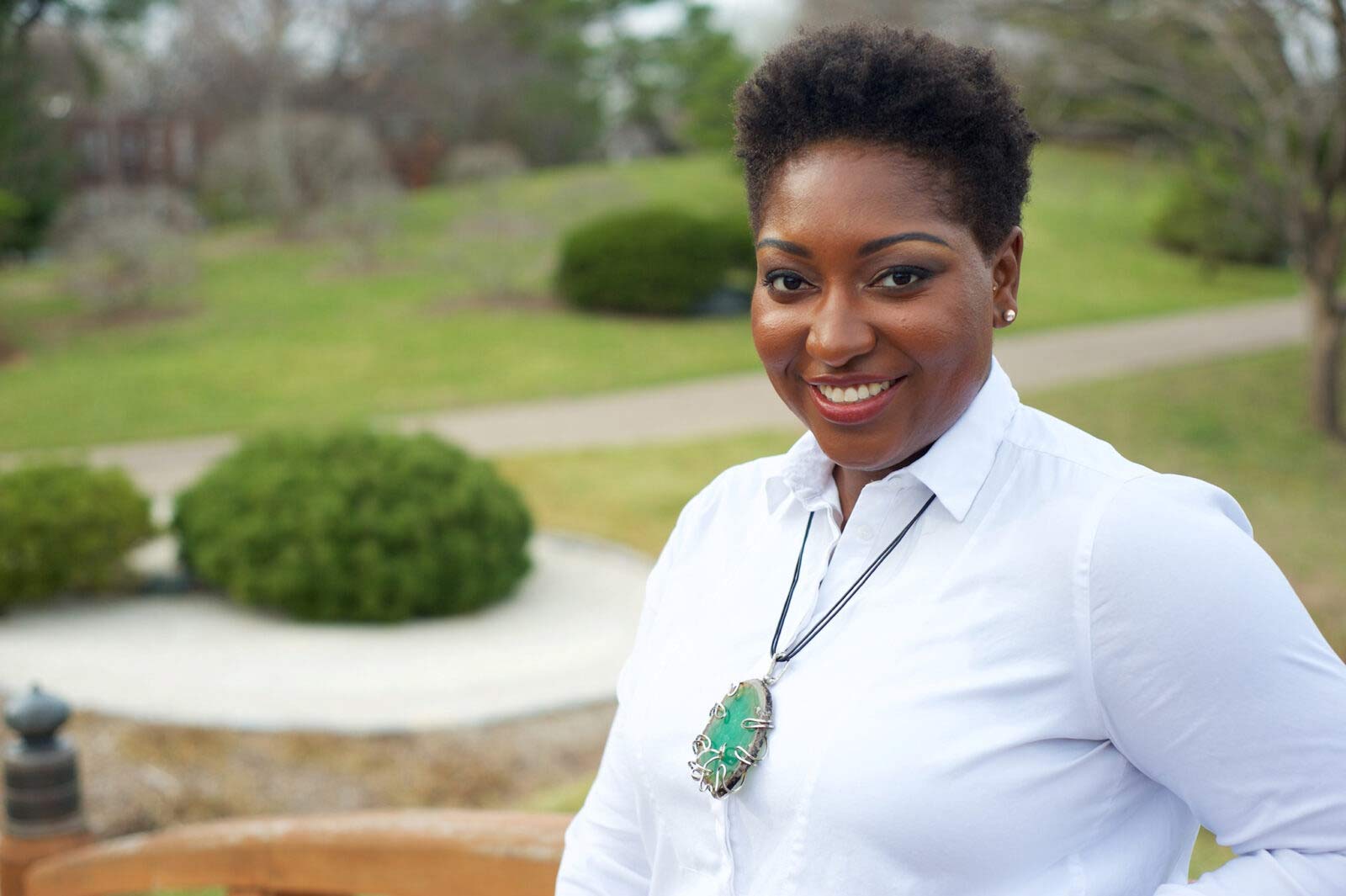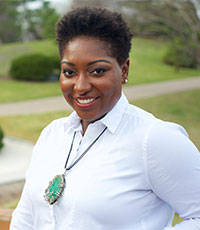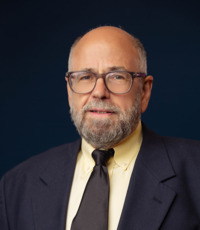News Details
Support on the Ground: PhD Student Examines Where Faith Organizations and Social Work Intertwine

Authored by: Alina Ladyzhensky
Photography by: Lindy Drew
Student Life
02/15/19
Faith-based organizations often offer tangible forms of aid through initiatives such as disaster relief efforts and financial assistance programs. But as Marquisha Lawrence Scott, a PhD candidate at Penn’s School of Social Policy & Practice (SP2), emphasizes, religious organizations can offer equally essential support in the areas of community mediation and empowerment.
Prior to pursuing her PhD, Scott completed a dual master’s degree in social work and divinity (MSW/MDiv) at Washington University in St. Louis (WUSTL) and Eden Theological Seminary, respectively. During that time, she helped to develop and facilitate Sacred Conversation on Race (+Action) in more than 50 religious congregations throughout St. Louis. The Sacred Conversations on Race (+Action) initiative was designed to provide safe spaces and support for congregations and faith organizations as they broach open dialogue in the community about the ways in which prejudice, power, and privilege are intertwined with issues of race and racism.
“After this community-based interaction, I wanted to learn more about the effects of our work on the ground,” Scott explained. “During my master’s level work, Ferguson and the killing of Michael Brown, Jr. shifted my organizing work in the city of St. Louis from Medicaid expansion and healthcare to race and racism.”
Scott conducted research in the Race & Opportunity Lab at the George Warren Brown School of Social Work at WUSTL during the last year of her master’s level education, an experience that spurred her to pursue a PhD.
“When applying to PhD programs, I wanted to attend a school where I had an advisor who was interested in my community-based work, especially my emphasis on working within religious congregations to address youth-related issues,” Scott said. “I also wanted a fully-funded program with a good reputation for training academicians.”
The program at SP2 met all of Scott’s criteria—plus, as she shared, “I get to work with my dream advisor, Dr. Ram A. Cnaan. He is the utmost leader in the field when it comes to religious congregational studies in social work.”
Scott’s area of study focuses on youth (aged 15-29) economic and social outcomes in a global society. This research includes examination of community-based organizations and faith-based institutions as mediating structures. Along with interdisciplinary partners in education and sociology, Scott aims to research youth-focused interventions that alleviate disparities brought on by globalization in the United States and abroad. Her dissertation, “Crossing Tracks & Ponds: Preparing Youth for a Global Society,” assesses how religious congregations can take part in preparing youth for living and thriving in a global society.
The first part of Scott’s study highlights religious congregations’ historical approaches of supporting communities, as well as their opportunity to support youth, locally and globally. The next part is a secondary data analysis using World Values Survey data across 18 countries to assess how youth identify as global citizens and religious individuals. Finally, the third part is a mixed-method approach in which Philadelphia-based clergy and youth leaders are interviewed and surveyed.
When asked what has stood out to her about the PhD program at SP2, Scott highlights the program’s freedom and flexibility, as well as the collaborative relationships between students and their advisors.
“Each PhD student experience is curated by the student, their advisor, and the program requirements,” Scott said. “The freedom in the PhD program has allotted me great work with developing my own research, writing on a large project, and most recently, traveling to India to conduct research in rural areas in six states, while focusing on their access to and understanding of digital banking. For me, the unique experience has been unmatched.”
Of the extensive research undertaking in India, Dr. Cnaan said, “In any societal transformation, the poor and especially the rural poor are the losers. Our project in India unravels the cost that poor rural people pay when the world moves toward abolishing cash as we know it and moving to full-scale to digital banking. I could not have done it without Marquisha and our doctoral students.”
After earning her PhD, Scott aims to become an assistant professor in a social work program, where she can apply her expertise as a macro social work researcher who operates interdisciplinarily within the topics of youth outcomes, community-based organizations, and globalization. In the meantime, she looks forward to completing data collection for her research in India, with a planned return in March 2019, as well as teaching the Action Research course for MSW students, which combines social research with intervention.
People
-

Marquisha Lawrence Scott, PhD, MSW, MDiv
Graduate, PhD in Social Welfare
Contact
Email
-
